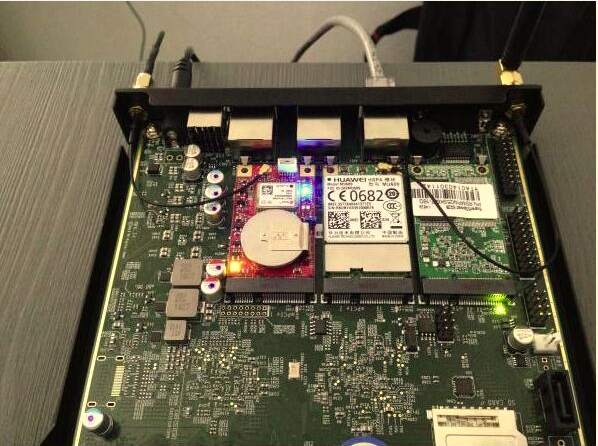Technology in Healthcare: 10 Groundbreaking Examples Transforming Modern Medicine
Table of Contents
- Introduction
- 1. Artificial Intelligence (AI) in Medical Diagnostics
- 2. Telemedicine and Remote Patient Monitoring
- 3. Robotic-Assisted Surgery
- 4. Wearable Health Devices
- 5. 3D Printing in Healthcare
- 6. Electronic Health Records (EHR)
- 7. Virtual and Augmented Reality in Medical Training
- 8. Genomics and Precision Medicine
- 9. IoT and Connected Medical Devices
- 10. Advanced Electronics in Healthcare by Wintech
- Summary Table
- References
Introduction

The integration of technology into healthcare is revolutionizing the way diseases are diagnosed, treated, and managed. From AI-driven diagnostics to wearable tech, modern innovations are enhancing patient outcomes, reducing costs, and making care more accessible. In this article, we explore 10 powerful examples of how technology is reshaping the healthcare landscape—both from a clinical and technological manufacturing perspective.
1. Artificial Intelligence (AI) in Medical Diagnostics
AI is playing a pivotal role in enhancing the accuracy and speed of medical diagnoses. Algorithms can now analyze medical imaging, pathology slides, and even genetic data to identify patterns that humans might miss.
- AI tools like Google’s DeepMind diagnose eye diseases with near-human accuracy.
- IBM Watson assists oncologists by recommending personalized cancer treatments.
- AI reduces diagnostic errors in radiology and dermatology.
2. Telemedicine and Remote Patient Monitoring
Telemedicine has gained massive traction, especially after the COVID-19 pandemic. It allows healthcare professionals to consult with patients via video calls, monitor chronic conditions remotely, and increase access to rural healthcare.
- Wearables track patient vitals and transmit data in real time.
- Mobile health apps facilitate follow-ups, prescription renewals, and routine checkups.
- Healthcare platforms integrate with cloud-based EHR systems.
3. Robotic-Assisted Surgery
Surgical robots like the da Vinci system allow for minimally invasive procedures with high precision and shorter recovery times. These systems enhance the capabilities of surgeons in complex operations.
- Improved control, dexterity, and visualization during surgery.
- Fewer complications and smaller incisions.
- Used in urology, gynecology, orthopedics, and cardiovascular surgery.
4. Wearable Health Devices
Wearable technologies are empowering patients to take control of their health. Devices like smartwatches and fitness bands can monitor heart rate, sleep patterns, oxygen levels, and more.
- Apple Watch and Fitbit provide ECG and blood oxygen readings.
- Continuous glucose monitors (CGMs) help manage diabetes.
- Remote monitoring aids in early detection of cardiac events.
5. 3D Printing in Healthcare
3D printing is revolutionizing medical manufacturing by enabling the creation of patient-specific implants, prosthetics, and even organs. This technology offers unparalleled customization and cost efficiency.
- Printed models for surgical planning and medical education.
- Custom-made bone and dental implants.
- Bioprinting tissues for regenerative medicine research.
6. Electronic Health Records (EHR)
Electronic Health Records streamline the collection, storage, and sharing of patient data across healthcare systems. EHRs improve data accessibility, reduce duplication, and enhance coordination of care.
- Faster access to patient history and test results.
- Improved safety through medication alerts and clinical decision support.
- Enhanced communication between specialists, general practitioners, and pharmacists.
7. Virtual and Augmented Reality in Medical Training
Virtual Reality (VR) and Augmented Reality (AR) are transforming medical education by providing immersive simulations for surgery and anatomy learning.
- AR overlays assist in real-time surgery navigation.
- VR platforms simulate complex procedures for students and professionals.
- Improves skill acquisition without real-life risk.
8. Genomics and Precision Medicine
The rise of genomics is paving the way for personalized treatment plans tailored to an individual’s genetic makeup. This approach, known as precision medicine, offers targeted therapies for better outcomes.
- Genetic screening for disease susceptibility and drug response.
- CRISPR gene editing for correcting mutations.
- Customized oncology treatments based on tumor profiling.
9. IoT and Connected Medical Devices
The Internet of Things (IoT) is enabling smart healthcare infrastructure by connecting devices and sensors that collect and transmit real-time data to healthcare providers.
- Smart hospital beds with occupancy and pressure sensors.
- IV pumps that alert staff when medication levels are low.
- Remote diagnostic tools for in-home patient monitoring.
10. Advanced Electronics in Healthcare by Wintech

As healthcare technologies advance, the demand for high-precision, high-mix electronics manufacturing continues to grow. Wintech, based in Dongguan, China, is a global leader in providing state-of-the-art electronic contract manufacturing and prototyping services.
Wintech’s Services for Healthcare Technology:
- PCB Design & Layout: High-level circuit design for medical devices.
- PCB Manufacturing & Assembly: From prototypes to full-scale production.
- PCBA SMT: Surface-mount technology for compact medical electronics.
- Plastic Molding: Custom casing for wearable or handheld medical devices.
- Metal Precision Machining: High-difficulty, complex enclosures and chassis.
- New Product Introduction (NPI): Rapid prototyping and validation services for medical startups.
Many of the world’s top 500 enterprises trust Wintech’s turnkey solutions for their healthcare technology needs. From diagnostic equipment to monitoring systems, Wintech supports development from concept to mass production.
Summary Table
| Technology | Primary Use | Benefit |
|---|---|---|
| AI Diagnostics | Analyze images, predict outcomes | Faster, more accurate diagnosis |
| Telemedicine | Remote consultations and monitoring | Increased access, convenience |
| Robotic Surgery | Assist in precise surgical procedures | Minimally invasive, improved outcomes |
| Wearables | Track health metrics | Empowers patients, early detection |
| 3D Printing | Custom prosthetics, surgical models | Personalized and cost-efficient |
| EHR Systems | Digital patient recordkeeping | Improved coordination and efficiency |
| VR/AR | Training and surgery assistance | Hands-on, risk-free learning |
| Genomics | Precision therapies | Tailored treatment and drug plans |
| IoT Devices | Data transmission and automation | Smarter hospitals, proactive care |
| Wintech Manufacturing | Medical electronics production | High-precision, full system support |
References
- NCBI – AI in Healthcare
- FDA – Medical Devices
- U.S. Health IT
- STAT News – Healthcare Technology
- Wintech Official Website






